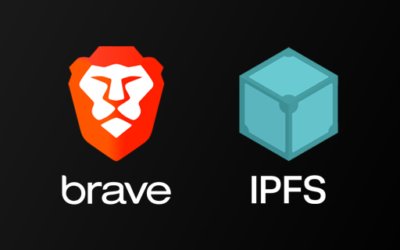Although primarily focused on privacy and security, the Brave Browser for desktop adds so many innovative features to the package every once in a while. Most of the time, these features help customers to overcome the restrictions on today’s internet.

Brave integrates IPFS protocol
However, this time, the developers have gone the extra step to protect users’ privacy and enable access to decentralized and censored content on the internet. The Brave browser has become the first to integrate the InterPlanetary File System. This new peer-to-peer transport protocol aims to reimagine how the internet works and manages content.
The InterPlanetary File System, better known as IPFS, is different from HTTPS, currently considered the internet standard. Compared to HTTPS, IPFS has been designed and optimized for the internet with decentralized elements. The IPFS protocol uses multiple nodes to store content instead of relying on a single web server.
The process is similar to sharing files via the BitTorrent protocol, but IPFS implements a better security and privacy line. The budding protocol provides the internet with advantages like extra protection from DDoS-based attacks and an advanced caching system. In short, the IPFS protocol can change the way we look at the internet in the future.
“IPFS’ innovative content addressing uses Content Identifiers (CIDs) to form an address based on the content itself as opposed to locating data based on the address of a server. Integrating the IPFS open-source network is a key milestone in making the Web more transparent, decentralized, and resilient,” said Brian Bondy, CTO and co-founder of Brave.
The Brave team says that the implementation of IPFS will allow users to bypass geographical restrictions and many censorship methods. Native support for the protocol means that users don’t need an extension when they want to access content stored via the IPFS protocol. Instead, they can type the URLs starting with ifps:// and locate the files in question.
It should be noted that the IPFS system prioritizes the content by what it is, unlike HTTPS, which uses the location/host of the data as the unique identifier. Because of this nature, the protocol is geared towards a content-centric version of the internet.
Protocol Labs develop the IPFS protocol, and it aims to overthrow the centralized status quo of the internet. This project is often talked about along with blockchain and cryptocurrency, but they are not the same. Both technologies use peer-to-peer technology as the base, but that’s where the similarities end and where the differences begin.
Leave a Reply